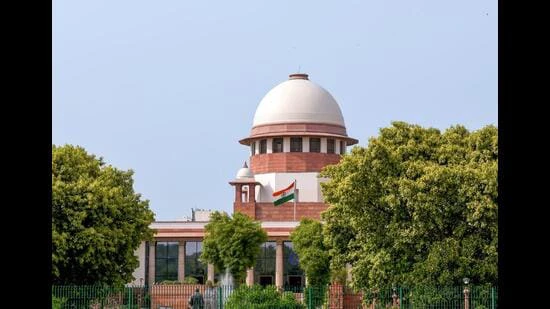The Supreme Court has referred to a larger bench the question of how the income of a person working abroad should be assessed for calculating compensation in road accident cases in India, noting that there are conflicting judicial views on whether to consider the deceased’s foreign salary in full or reduce it to reflect Indian living standards.
A bench of justices Rajesh Bindal and Manmohan said the issue had become increasingly important as a growing number of Indians, particularly in information technology (IT) and specialised professions, were employed overseas and sending money back home.
“With changes in the level of earnings in the last decades, a lot of IT graduates/professionals and other Indians are going abroad for better career opportunities. There are divergent views on applying deductions where the income is earned in a foreign country. The issue deserves to be resolved by a larger bench,” said the court, requesting the Chief Justice of India to constitute one.
The recent ruling came in an appeal filed by the family of Hari Shankar Brahma, a 27-year-old system analyst employed with Nihaki Systems Inc in New Jersey, USA, who died in a road accident in India in 2009. He was earning $ 47,050 annually (around ₹21 lakh at the time). His parents and siblings sought compensation.
The Motor Accident Claims Tribunal calculated compensation based on his US income, while applying standard deductions, and awarded ₹63 lakh. The Gauhati high court reduced the income for assessment, treating him as a contractual foreign worker and considering only one-third of his overseas salary as the starting point. It then applied future prospects and deductions, raising the final compensation to ₹83.63 lakh.
The family challenged this, arguing that the high court had effectively reduced the income twice — first by lowering it to one-third of the foreign salary, and then by deducting 50% towards personal expenses because the deceased was unmarried.
The Supreme Court noted that there are two sets of past rulings. One line of judgments says that the full foreign salary should be considered and normal deductions applied, while another line of judgments says the foreign income must be adjusted or moderated to reflect cost of living differences between India and the country of employment, and then deductions applied.
The court said clarity is now needed on several practical questions, including as to whether foreign income should be reduced before applying standard deductions; if moderation is required, what formula should be used; how to account for remittances to family in India; and whether the family lived abroad or in India, especially if the deceased was married.
The bench observed that with a rising number of Indians employed abroad, inconsistent approaches risked resulting in arbitrary compensation awards. A uniform principle, it said, was necessary to ensure fairness both to dependants of victims and to insurers.
“Let the papers be placed before the Hon’ble Chief Justice of India for constituting a larger Bench for consideration of the issues referred to above,” said the bench.
